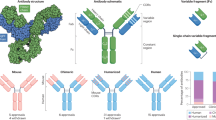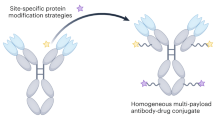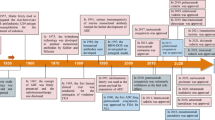Abstract
Background
Interindividual pharmacokinetic variability may influence the clinical benefit or toxicity of cabozantinib in metastatic renal cell carcinoma (mRCC). We aimed to investigate the exposure-toxicity and exposure-response relationship of cabozantinib in unselected mRCC patients treated in routine care.
Methods
This ambispective multicenter study enrolled consecutive patients receiving cabozantinib in monotherapy. Steady-state trough concentration (Cmin,ss) within the first 3 months after treatment initiation was used for the PK/PD analysis with dose-limiting toxicity (DLT) and survival outcomes. Logistic regression and Cox proportional-hazards models were used to identify the risk factors of DLT and inefficacy in patients, respectively.
Results
Seventy-eight mRCC patients were eligible for the statistical analysis. Fifty-two patients (67%) experienced DLT with a median onset of 2.1 months (95%CI 0.7–8.2). In multivariate analysis, Cmin,ss was identified as an independent risk factor of DLT (OR 1.46, 95%CI [1.04–2.04]; p = 0.029). PFS and OS were not statistically associated with the starting dose (p = 0.81 and p = 0.98, respectively). In the multivariate analysis of PFS, Cmin, ss > 336 ng/mL resulted in a hazard ratio of 0.28 (95%CI, 0.10–0.77, p = 0.014). By contrast, Cmin, ss > 336 ng/mL was not statistically associated with longer OS.
Conclusion
Early plasma drug monitoring may be useful to optimise cabozantinib treatment in mRCC patients treated in monotherapy, especially in frail patients starting at a lower than standard dose.
This is a preview of subscription content, access via your institution
Access options
Subscribe to this journal
Receive 24 print issues and online access
$259.00 per year
only $10.79 per issue
Buy this article
- Purchase on Springer Link
- Instant access to full article PDF
Prices may be subject to local taxes which are calculated during checkout



Similar content being viewed by others
Data availability
The datasets used and analysed during the current study are available from the corresponding author upon reasonable request.
References
Hsieh JJ, Purdue MP, Signoretti S, Swanton C, Albiges L, Schmidinger M, et al. Renal cell carcinoma. Nat Rev Dis Prim. 2017;3:17009.
Choueiri TK, Escudier B, Powles T, Mainwaring PN, Rini BI, Donskov F, et al. Cabozantinib versus everolimus in advanced renal-cell carcinoma. N. Engl J Med. 2015;373:1814–23.
Choueiri TK, Powles T, Burotto M, Escudier B, Bourlon MT, Zurawski B, et al. Nivolumab plus cabozantinib versus sunitinib for advanced renal-cell carcinoma. N. Engl J Med. 2021;384:829–41.
Buil-Bruna N, López-Picazo J-M, Martín-Algarra S, Trocóniz IF. Bringing model-based prediction to oncology clinical practice: a review of pharmacometrics principles and applications. Oncologist. 2016;21:220–32.
Schmidinger M, Danesi R, Jones R, McDermott R, Pyle L, Rini B, et al. Individualized dosing with axitinib: rationale and practical guidance. Future Oncol Lond Engl. 2018;14:861–75.
Lacy S, Nielsen J, Yang B, Miles D, Nguyen L, Hutmacher M. Population exposure-response analysis of cabozantinib efficacy and safety endpoints in patients with renal cell carcinoma. Cancer Chemother Pharm. 2018;81:1061–70.
Castellano D, Pablo Maroto J, Benzaghou F, Taguieva N, Nguyen L, Clary DO, et al. Exposure-response modeling of cabozantinib in patients with renal cell carcinoma: Implications for patient care. Cancer Treat Rev. 2020;89:102062.
Krens SD, van Erp NP, Groenland SL, Moes DJAR, Mulder SF, Desar IME, et al. Exposure-response analyses of cabozantinib in patients with metastatic renal cell cancer. BMC Cancer. 2022;22:228.
Cerbone L, Combarel D, Geraud A, Auclin E, Foulon S, Alves Costa Silva C, et al. Association of cabozantinib pharmacokinetics, progression and toxicity in metastatic renal cell carcinoma patients: results from a pharmacokinetics/pharmacodynamics study. ESMO Open. 2021;6:100312.
Lacy S, Yang B, Nielsen J, Miles D, Nguyen L, Hutmacher M. A population pharmacokinetic model of cabozantinib in healthy volunteers and patients with various cancer types. Cancer Chemother Pharm. 2018;81:1071–82.
Eisenhauer EA, Therasse P, Bogaerts J, Schwartz LH, Sargent D, Ford R, et al. New response evaluation criteria in solid tumours: revised RECIST guideline (version 1.1). Eur J Cancer Oxf Engl 1990. 2009;45:228–47.
Lacy SA, Miles DR, Nguyen LT. Clinical pharmacokinetics and pharmacodynamics of cabozantinib. Clin Pharmacokinet. 2017;56:477–91.
Choueiri TK, Escudier B, Powles T, Tannir NM, Mainwaring PN, Rini BI, et al. Cabozantinib versus everolimus in advanced renal cell carcinoma (METEOR): final results from a randomised, open-label, phase 3 trial. Lancet Oncol. 2016;17:917–27.
Albiges L, Fléchon A, Chevreau C, Topart D, Gravis G, Oudard S, et al. Real-world evidence of cabozantinib in patients with metastatic renal cell carcinoma: results from the CABOREAL Early Access Program. Eur J Cancer Oxf Engl 1990. 2021;142:102–11.
Mueller-Schoell A, Groenland SL, Scherf-Clavel O, van Dyk M, Huisinga W, Michelet R, et al. Therapeutic drug monitoring of oral targeted antineoplastic drugs. Eur J Clin Pharm. 2021;77:441–64.
Puisset F, Mseddi M, Mourey L, Pouessel D, Blanchet B, Chatelut E, et al. Therapeutic drug monitoring of tyrosine kinase inhibitors in the treatment of advanced renal cancer. Cancers. 2023;15:313.
Gan CL, Dudani S, Wells JC, Donskov F, Pal SK, Dizman N, et al. Cabozantinib real-world effectiveness in the first-through fourth-line settings for the treatment of metastatic renal cell carcinoma: results from the international metastatic renal cell carcinoma database consortium. Cancer Med. 2021;10:1212–21.
Krens SD, van Boxtel W, Uijen MJM, Jansman FGA, Desar IME, Mulder SF, et al. Exposure-toxicity relationship of cabozantinib in patients with renal cell cancer and salivary gland cancer. Int J Cancer. 2022;150:308–16.
Tran BD, Li J, Ly N, Faggioni R, Roskos L. Cabozantinib exposure-response analysis for the phase 3 CheckMate 9ER trial of nivolumab plus cabozantinib versus sunitinib in first-line advanced renal cell carcinoma. Cancer Chemother Pharm. 2023;91:179–89.
Corianò M, Giannarelli D, Scartabellati G, De Giorgi U, Brighi N, Fornarini G, et al. Tailoring treatment with cabozantinib or pazopanib in patients with metastatic renal cell carcinoma: does it affect outcome? Expert Rev Anticancer Ther. 2023;23:545–54.
Arrondeau J, Mir O, Boudou-Rouquette P, Coriat R, Ropert S, Dumas G, et al. Sorafenib exposure decreases over time in patients with hepatocellular carcinoma. Invest N. Drugs. 2012;30:2046–9.
Ozbey AC, Combarel D, Poinsignon V, Lovera C, Saada E, Mir O, et al. Population pharmacokinetic analysis of pazopanib in patients and determination of target AUC. Pharm Basel Switz. 2021;14:927.
Sharma A, Elias R, Christie A, Williams NS, Pedrosa I, Bjarnason GA, et al. Extended disease control with unconventional cabozantinib dose increase in metastatic renal cell carcinoma. Kidney Cancer Clifton Va. 2022;6:69–79.
Mir O, Touati N, Lia M, Litière S, Le Cesne A, Sleijfer S, et al. Impact of concomitant administration of gastric acid-suppressive agents and pazopanib on outcomes in soft-tissue sarcoma patients treated within the EORTC 62043/62072 trials. Clin Cancer Res J Am Assoc Cancer Res. 2019;25:1479–85.
Ha VH, Ngo M, Chu MP, Ghosh S, Sawyer MB, Chambers CR. Does gastric acid suppression affect sunitinib efficacy in patients with advanced or metastatic renal cell cancer? J Oncol Pharm Pr Publ Int Soc Oncol Pharm Pr. 2015;21:194–200.
Nguyen L, Holland J, Mamelok R, Laberge M-K, Grenier J, Swearingen D, et al. Evaluation of the effect of food and gastric pH on the single-dose pharmacokinetics of cabozantinib in healthy adult subjects. J Clin Pharm. 2015;55:1293–302.
Rassy E, Cerbone L, Auclin E, Benchimoll-Zouari A, Flippot R, Alves Costa Silva C, et al. The effect of concomitant proton pump inhibitor and cabozantinib on the outcomes of patients with metastatic renal cell carcinoma. Oncologist. 2021;26:389–96.
Buti S, Tommasi C, Scartabellati G, De Giorgi U, Brighi N, Rebuzzi SE, et al. The impact of proton-pump inhibitors administered with tyrosine kinase inhibitors in patients with metastatic renal cell carcinoma. Anticancer Drugs. 2023;34:178–86.
Lee C-H, Shen M-C, Tsai M-J, Chang J-S, Huang Y-B, Yang Y-H, et al. Proton pump inhibitors reduce the survival of advanced lung cancer patients with therapy of gefitinib or erlotinib. Sci Rep. 2022;12:7002.
McGregor B, Mortazavi A, Cordes L, Salabao C, Vandlik S, Apolo AB. Management of adverse events associated with cabozantinib plus nivolumab in renal cell carcinoma: a review. Cancer Treat Rev. 2022;103:102333.
Author information
Authors and Affiliations
Contributions
BB, AJ, JM, and YV designed the study. All authors participated in the collection and assembly of data. AJ performed the statistical analysis. BB, AJ, and YV drafted the manuscript. All authors revised the work, approved its final version, and agreed to be accountable for all its aspects.
Corresponding author
Ethics declarations
Competing interests
BB has received consulting and speaking fees (Bristol Myers Squibb, Clovis Oncology, Janssen, Pierre Fabre, Pfizer and Promise). SO has received honoraria (Sanofi, Pfizer, Bristol Myers Squibb, Eisai, Merck, Novartis, Ipsen, Astellas, Janssen and Bayer), travel and accommodation expenses (Sanofi, Pfizer, Bristol Myers Squibb, Eisai, Merck, Novartis, Ipsen, Astellas, Janssen and Bayer) and research grants (Sanofi, Astra Zeneca, Pfizer, Novartis, Janssen, Bayer and Roche). YV has received honoraria (Bristol Myers Squibb, Merck, Ipsen, Pfizer and Eisai) and research grants (Bristol Myers Squibb and Ipsen). CJ has received honoraria (Ipsen, Astellas, Bayer and Janssen). RF has received honoraria (Bayer, Astellas, Janssen, Ipsen, Merck, Bristol Myers Squibb, Pfizer and Merck). AP has received speaking fees (Bristol Myers Squibb and Pierre Fabre). LM has received honoraria (Sanofi, Astellas, Janssen, MSD, Bristol Myers Squibb, Ipsen, Astra Zeneca and Merck, Novartis) and travel and accommodation expenses (Sanofi, Astellas, Janssen, Bristol Myers, Ipsen, Astra Zeneca, Pfizer, MSD). LA has received honoraria (Novartis, Astellas, Janssen, MSD, Bristol Myers Squibb, Ipsen, Eisai, Pfizer and Merck, Roche) and travel and accommodation expenses (Bristol Myers Squibb, Ipsen, Pfizer, MSD). OH has received honoraria (Sanofi, Bayer, MSD, Bristol Myers Squibb, Ipsen, Pfizer, Eisai, Janssen, Astra Zeneca and Merck). XD has received consulting honoraria (Inflectis Biosciences, MedDay Pharmaceuticals, MAPREG and Merck). JM has received consulting honoraria (Daiichi Sankyo, Gilead, Lilly Eli, MSD and Pfizer) and travel and accommodation expenses (Lilly Eli, Gilead and Seattle Genetics).AXV, AJ, FP, DC, FLL, FT, MT, TP, CT, JC, EC, MV and FG declare no conflict of interest.
Ethics approval and consent to participate
The study was approved by the local ethics committee in oncology (CLEP number: AAA-2022–08055). Informed consent was obtained from all patients prior to inclusion.
Additional information
Publisher’s note Springer Nature remains neutral with regard to jurisdictional claims in published maps and institutional affiliations.
Supplementary information
Rights and permissions
Springer Nature or its licensor (e.g. a society or other partner) holds exclusive rights to this article under a publishing agreement with the author(s) or other rightsholder(s); author self-archiving of the accepted manuscript version of this article is solely governed by the terms of such publishing agreement and applicable law.
About this article
Cite this article
Blanchet, B., Xu-Vuilard, A., Jouinot, A. et al. Exposure-response relationship of cabozantinib in patients with metastatic renal cell carcinoma treated in routine care. Br J Cancer 130, 961–969 (2024). https://doi.org/10.1038/s41416-024-02585-y
Received:
Revised:
Accepted:
Published:
Issue Date:
DOI: https://doi.org/10.1038/s41416-024-02585-y



